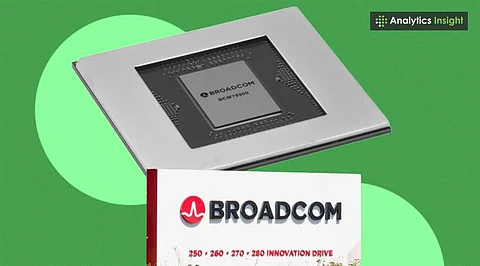

What’s New Today: Broadcom introduces Tomahawk Ultra, a networking chip designed to scale AI computing, rivaling Nvidia’s NVLink Switch technology.
Fast-Track Insights: Quadsat raises €5M to develop drone-based spectrum intelligence tools, boosting defense operations and expanding across NATO regions.
Here’s a quick rundown of the biggest tech headlines making waves today. Let's dive into the day's top tech stories, from Broadcom's new networking chip, Tomahawk Ultra, designed to enhance AI data processing, to Goldman Sachs' introduction of Devin, an AI software engineer.
Broadcom has launched the Tomahawk Ultra networking chip to enhance AI data processing by interconnecting hundreds of chips inside data centers. Developed over three years for the performance-hungry computing realm, the chip now adapts to AI scale-up applications. It acts as a stronger competitor to the NVLink Switch from Nvidia, using high-speed Ethernet to link four times more chips. Now shipping, the Tomahawk Ultra chip has been fabricated by TSMC in a five-nanometer process.
Quadsat, a Danish startup, has secured €5 million to enhance its spectrum intelligence solution for the defense and satellite communications sectors. Initially established by a pair of university students, the company developed drone-based methods for antenna testing, which now have military applications. The compact, platform-agnostic payloads perform real-time RF geolocation and interference detection, as well as efficient analysis of battlefield signals. The funding will accelerate technology development and expand Quadsat's presence in NATO countries as demand for electronic warfare readiness increases.
Goldman Sachs introduced the AI Developer, Devin, by Cognition, to automate mundane coding tasks. Currently being deployed in "hundreds," with plans for thousands in deployment, Devin can spur a 3- to 4-fold surge in productivity and quickly transform the bank's 12,000-strong developer base. While this shift favors efficiency, it is raising concerns for the new engineering graduates. AI, in effect, can threaten their entry-level jobs. Hence, Goldman foresees a hybrid setup in which engineers would work with the AI to translate problems into workable prompts.
Artificial Intelligence is pushing the frontiers of biocomputing by quickly analyzing data, conducting accurate gene modeling, and generating efficient drug discoveries in mere moments. AI serves synthetic biology by designing smarter genes, and in healthcare applications, it reads patient data for personalized treatment. It accurately predicts protein structures and molecular behavior, thereby fast-tracking research on diseases. Yet, in coming years, when it sets foot on the new pedestal of heightened efficiency, it shall usher in the much-celebrated innovations such as brain-computer interfaces and biorobots, thus paving the way from biological computation to real-world implementations.
AI analysis identifies Chainlink (LINK), Cardano (ADA), and Avalanche (AVAX) as potential candidates for significant breakouts during the altcoin season. Technical formations, such as falling wedges and symmetrical triangles, in confluence with an increasing volume and bullish indicators, suggest that a 44% to 264% increase within 30 days could occur. Strong fundamentals and institutional adoption will allow these tokens to truly outperform speculative assets. Breakout probabilities are quite high, supported by a rapid shift in market sentiment and accelerating momentum from Bitcoin's recent rally.
